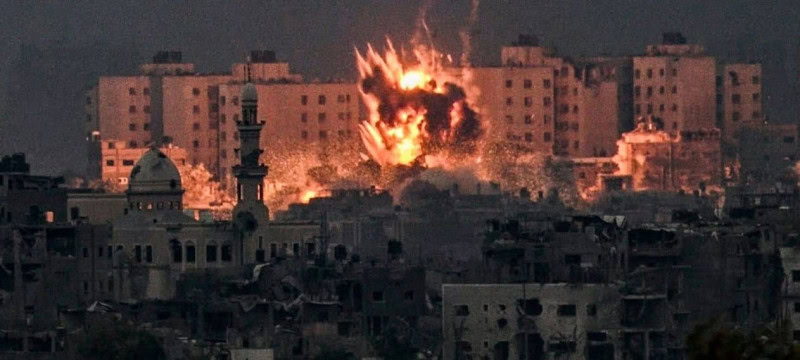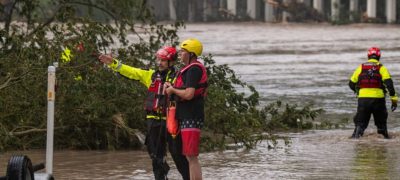Time is running out to save millions of people in the besieged Gaza Strip as water supplies have dried up and food and fuel stocks are dwindling, aid agencies said on Monday. “There are 24 hours of water, electricity and fuel left” in Gaza, WHO regional director Ahmed Al-Mandhari told AFP in an interview in Cairo. If aid is not allowed in, doctors will have to “prepare death certificates for their patients”, he said in a stark warning. Meanwhile, UN Secretary General Antonio Guterres has warned that the entire Middle East region was “on the verge of the abyss”, as Israel faces a potential second front on its northern border with Lebanon.
US Secretary of State Antony Blinken, who has been shuttling between Middle Eastern capitals in recent days, returned to Israel on Monday after talks in six Arab states, hoping to find ways to alleviate Gaza’s humanitarian crisis. The trip comes as President Joe Biden, who abruptly called off a trip to Colorado on Monday, is said to be weighing an invitation to visit Israel to show solidarity with Washington’s primary ally in the Middle East. The Biden administration has warned against more extreme measures, such as mass expulsion of Palestinians, a prospect feared by Palestinian president Mahmud Abbas.
In an interview with CBS News, President Biden offered rare criticism of Israeli actions in Gaza, saying that any bid by Tel Aviv to re-occupy the enclave would be “a mistake”. The White House has stopped short of calling for a ceasefire, but in remarks made in Cairo, Blinken also said: “Civilians should not have to suffer for Hamas’s atrocities”. Catastrophe in south Gaza Palestinians gather at a site of Israeli strikes in Khan Yunis, in the southern Gaza Strip, on Monday.—Reuters Entire families, young children and the elderly have packed what belongings they can to flee to the southern Gaza Strip, bedding down in any available space, indoors and out.
In southern Gaza, the city of Khan Yunis, usually home to 400,000 people, has more than doubled in population within just days, with terrified families hunkering down wherever they can. The UN agency supporting Palestinian refugees said on Sunday that one million people had already been displaced in the first week of the conflict — but the number was likely to be higher. At a mortuary in the southern city of Rafah, Fatma Hamouda said she lost her maternal uncles in an air strike that destroyed the family home. “The house they were in was supposed to be safe,” she said, crying. “No electricity, no water, no internet, no cell network, no diapers, no milk. Even if we die of hunger, we will stay here and we will not leave.”
Israel said on Sunday it switched water supplies back on in the south to encourage Gazans to leave the north. “The situation is catastrophic beyond what I could have imagined,” said Jamil Abdullah, a Palestinian-Swede who is hoping to leave after being forced to sleep on the street. “There are corpses in the streets. Buildings are crashing down on their inhabitants. Blood is everywhere. The smell of the dead is everywhere.” A picture shows a damaged UNRWA food aid warehouse and distribution centre due to Israeli strikes in Tall al-Hawa neighbourhood in southern Gaza City on October 16, 2023.

Authorities were preparing mass graves, said the head of the Government Media Office, Salama Marouf. In light of the large number of martyrs inside the morgues of Al-Shifa Hospital, whose relatives did not arrive to bury them, signs of change began to appear on the bodies,“ he said. “And in light of the continued arrival of martyrs in their dozens as a result of the occupation’s massacres, a mass grave has been prepared to bury approximately 100 martyrs in the emergency cemetery





